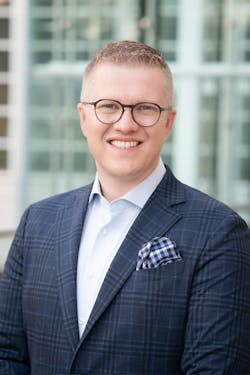The nonprofit Catholic health system CommonSpirit Health recently announced the launch of a national value-based services platform. The Population Health Services Organization (PHSO) will provide services such as network management, care coordination, data management and analytics, technology infrastructure, and reporting. Derek Novak, system vice president of population health services at Chicago-based CommonSpirit and lead executive for CommonSpirit’s PHSO, recently spoke with Healthcare Innovation about the launch.
HCI: Before we talk about this nationwide rollout, could you talk about your experience leading the MercyOne population health service organization?
Novak: I've been part of Catholic Health Initiatives and then CommonSpirit for 17 years. Much of that time was spent in Iowa leading what was Mercy's accountable care organization. Eventually we took a strategic pivot to establish ourselves as a convener of value-based care in the state. Ultimately, I ended up in the chief operating officer role with that organization. And that evolved into the president role leading that work, growing our value-based portfolio to about 350,000 covered lives. We positioned ourselves in terms of leading full-risk arrangements, downside risk arrangements and a number of different products. We ended up having a very large network across the state, actually trickling over into some of the other states around Iowa.
HCI: Was that something of an entrepreneurial shift from just working with a tighter group of your own providers to broadening that out to other independent physician organizations?
Novak: Yes, in 2012, with the launch of ACOs, many organizations were starting to work with employed groups or groups that were strategically aligned. Later, as we looked at coordinating care across the continuum, we recognized that it had to be broader than our employees or our assets or just those strategic partners. So it was a strategic pivot to be able to have an adequate network so that we have greater line of sight into the quality that we're providing or the experience that we're able to provide, as well as making it frictionless not only for members or patients but also for providers that work across that continuum.
HCI: So now is the idea to scale that model up on a national level?
Novak: Yes. Earlier this year I joined the CommonSpirit national team. CommonSpirit has been doing value-based care for the better part of a decade. It has been in managed care, predominantly in the California market, so that is the foundation we're working from. We are in 24 different states with 2.6 million covered lives. We are looking for opportunities to build on that experience, that past success with what we refer to as our value hubs in those 24 states. We are working with them to look at how we can ensure that not only are they set up for success in value-based care, but how do we continue to improve quality and continue to grow those networks.
HCI: It sounds like you'll be using those value hubs to expand, but would you also be going into markets where CommonSpirit doesn't already have a presence?
Novak: I would say our initial focus is to continue to look at those locations or geographies that we're in today and ensure that we have an adequate network to ensure that we have the right services aligned to those networks in order for them to be successful, as well as looking how we strengthen and help deliver on our mission with those integrated services, and expanding within those geographies.
HCI: From your experience at MercyOne, were there some specific things that you thought were a key to success in in the value-based care arrangements?
Novak: When I think about our foundational elements for success, it really points to some of the same services that we're looking to in terms of our Population Health Services Organization. Technology obviously plays an important role in terms of being able to manage a population, so we are using similar or the same technologies across hubs so that we're coordinating those strategies together.
The other important thing is ensuring that we have a complete continuum as well as partners engaged in this work. It is not only about delivering the results financially, but also about how we ensure that providers have information to manage populations, and ensure that we're coordinating care across that continuum for those members. That takes partnerships, so we are focused on that network piece as another very important foundational element.


